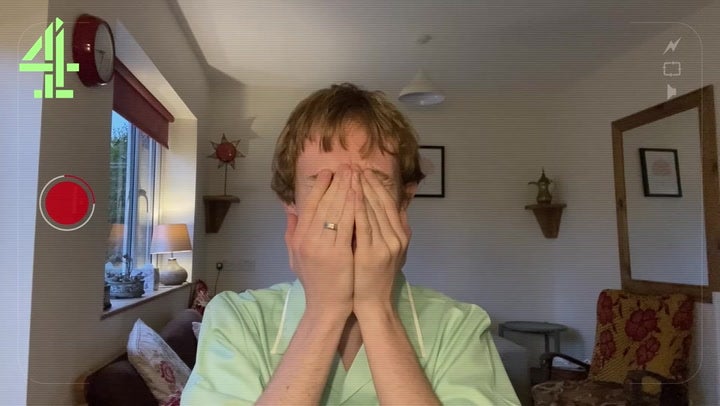Puddles of blood, urinating in corridors and 46 hour waits: Undercover Dispatches footage reveals A&E horrors
‘The standard of A&E care in England is in about as deep a hole as I’ve seen in the last 20 years’ says think tank expert
A patient in a West Midlands A&E was forced to urinate while lying in a corridor as another was left crying in agony for hours in an undercover report highlighting the NHS’ emergency care crisis.
A Channel 4 Dispatches programme has exposed the “suffering and indignity faced by patients on a daily basis” after an undercover reporter secretly filmed himself working as a trainee healthcare assistant inside the emergency department of the Royal Shrewsbury Hospital for two months. The footage, which aired on Monday night, shows one patient waiting 30 hours in a “fit to sit” area while a suspected stroke sufferer was there for 24 hours, the broadcaster said.
In one clip, an elderly man was forced to urinate in a trolley on the corridor in full view of staff and other patients, while in another a woman is left crying in agony for hours. Nurses are also seen discussing how one of their patients was forced to wait a staggering 46 hours for care and at one point the footage shows large pools of blood on the floor.
Have you been impacted by the A&E crisis? Email rebecca.thomas@independent.co.uk
Experts have said while the scenes were “shocking” and “harrowing” they were not unique to the Royal Shrewsbury Hospital and are occurring in hospitals across England.
Dr Adrian Boyle, president of the Royal College of Emergency Medicine, said in response to the footage: “The things we’ve seen here today are clearly not just confined to winter. It was a year-round crisis in emergency care.
“Spending two days in an emergency department is worse than spending two days in an airport lounge. These are people who are sitting in uncomfortable seats where the lights never go off. There’s constant noise, there’s constant stress. There’s no end in sight.
“People will miss their routine medications. They’ll be next to people who can infect them with other diseases. It’s just not acceptable.”

The story comes after Labour Shadow Health Minister Wes Streeting admitted last week the NHS would still face a winter crisis this year and corridor care cannot be immediately eliminated.
Several stories by The Independent exposed the unfolding A&E crisis last year as A&E waits hit a record high last January as 50,000 people a week were left waiting more than 12 hours in emergency departments.
A Freedom of Information request by Dispatches to NHS England found almost 400,000 patients were waiting in A&E for more than 24 hours in the 12 months from April 2023 to March 2024, a 5 per cent rise on the same period last year.
One nurse in the programme admitted that “basic nursing care standards have fallen” and listed complaints including patients being left in a state of partial undress, left on bed pans for too long and oxygen not being monitored properly.”
Siva Anandaciva, chief analyst at the King’s Fund, said: “Some of the scenes in tonight’s Dispatches are truly harrowing. NHS services are meant to be places of safety and it should be a wake-up call to senior leaders and politicians that this isn’t always the case.

“That could be any one of a number of hospitals up and down the country, which is absolutely staggering.
“I think the standard of A&E care in England is in about as deep a hole as I’ve seen in the last 20 years. So, whatever government comes in, they have a huge task to recover performance.
A spokesperson for the hospital trust said: “As with other hospitals, our trust is facing significant challenges with urgent and emergency care.
“We understand our challenges and are investing in our services and making steady improvements as a trust, as noted in our recent CQC report. However, there is still much more to do; we do not want to be in a position where we are caring for patients in corridors.
Subscribe to Independent Premium to bookmark this article
Want to bookmark your favourite articles and stories to read or reference later? Start your Independent Premium subscription today.


Join our commenting forum
Join thought-provoking conversations, follow other Independent readers and see their replies
Comments